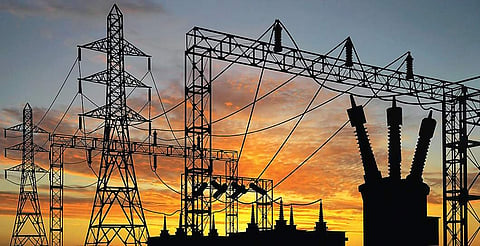

BHUBANESWAR: With increased demand for group net metering and virtual net metering for use of renewable energy, the Odisha Electricity Regulatory Commission (OERC) has amended its regulations to allow generation of more that 500 KW power from renewable sources.
The amended provisions will not only allow individuals or groups to generate energy from renewable sources - solar energy emerging as the most sustainable source - but also enable the power producers to export or transfer the surplus to the grid and earn credit.
The process of transferring such energy is known as net metering.
Amending its 2016 order, the OERC said the new order will be known as net metering/bi-directional metering/gross metering/group net metering/virtual net metering and their connectivity with respect to solar photovoltaic projects.
Gross metering is a mechanism where the total energy generated from grid interactive solar photovoltaic system of a prosumer and the total energy consumed by the generator are accounted separately through appropriate metering arrangements.
The total energy consumed by the prosumer is accounted at the applicable retail tariff and total solar power generated is accounted for at a tariff determined by the Commission.
The prosumer is a consumer of electricity in the area of supply of the distribution licensee, who uses a self-owned or third party-owned solar power system installed on his/her premises, to offset part or all of the electricity requirements and also inject electricity into the grid.
Under group net metering, surplus energy generated from a renewable energy system and exported to the grid are regulated in multiple electricity service connections of the same user located within the same area of supply.
On the other hand, virtual net metering (VNM) is an arrangement in which the total energy generated from a renewable energy system is exported to the grid from the renewable gross meter and the power exported is regulated in multiple electricity service connections of engaging customers located in the same distribution area of supply.
The virtual net metering framework will be applicable for consumers under domestic, specified public purpose category and offices of government/ local authorities as per OERC Distribution (Conditions of Supply) Code, 2019, the order said.
As per the notified guidelines, the renewable plants will range from 5 KW to 500 KW extension. The provision of group/virtual metering will bring further investment in the renewable energy sector.